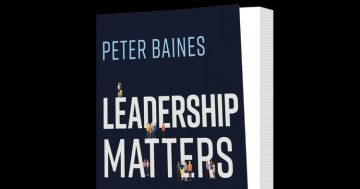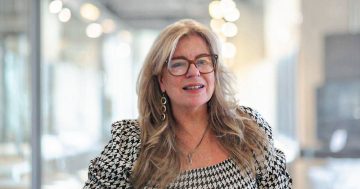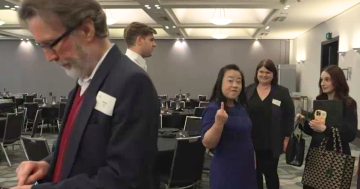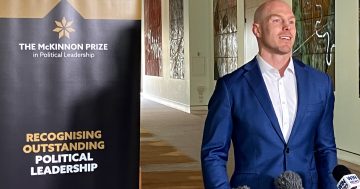John Eades* says fear is a natural reaction to all the really big career decisions — it will never go away, but it can be overcome.
 Do you remember how it felt when you had to make your first big professional decision?
Do you remember how it felt when you had to make your first big professional decision?
Whether it was to fire someone or make a significant purchasing decision, chances are you felt fearful, nervous, and a bit sceptical.
While these are natural human emotions, figuring out how to consistently overcome them is a key to your progress.
The reason is simple; your mind is more powerful than you think it is. It often is the difference between success and failure.
Take Martha, an experienced salesperson at a software company.
She was outstanding in her role and had been a high performer for more than five years.
However, she yearned for more influence and impact on others in her career.
When a sales director position opened up in the company, she dreamed of what she would do in the role, but when the email went out about applying for the job, she didn’t respond right away.
Instead, she doubted whether she was ready and if she was good enough to lead other people.
She allowed her fear not to pursue the job, and one of her colleagues with less experience ended up as her boss.
Now, there is no way to tell if Martha would have got the job over her colleague, but her mind, not her skills, eliminated her from a job she wanted.
She allowed fear to win over courage.
Fear is defined as an unpleasant feeling triggered by the perception of danger, real or imagined.
According to Arash Javanbakht and Lisa Saab in their article, What Happens in the Brain When We Feel Fear, fear reaction starts in the brain.
It spreads through the body to make adjustments for the best fight-or-flight reaction.
Author of Courage is Calling, Ryan Holiday wrote: “No human is without fear. What’s required is the ability to rise above it in the moments that matter.”
The most remarkable leaders on the planet recognise the battle against fear is permanent, and they have to overcome it constantly.
Leaders today, unlike previous generations, have been thrust into a hyper-uncertain work environment which causes higher levels of fear and anxiety.
They have to overcome uncertainty in their minds and help their team members to do the same.
Uncertainty for leaders is when they face unmeasurable and unpredictable risks, often caused by things outside their control.
However, if leaders had all the data and there was no uncertainly, not only would they not be required, there would be no decisions, there would just be foregone conclusions.
The best leaders embrace uncertainty and choose courage because they would rather be part of the solution, not a bystander.
They would rather be the man in the arena rather than sitting on the sidelines, allowing others to make a positive difference.
The only way for this to happen is for leaders to reject fear and choose courage.
Not only are the best leaders able to choose courage for themselves, but they can also inspire others to do the same.
They breathe life into their team members by encouraging, challenging, and empowering them — all in an effort to help them learn and grow.
Even though leaders know this isn’t easy, great leaders embrace failure and don’t accept fear as a decision on their team.
It would be common thinking to believe the best leaders reject fear and choose courage naturally. This wouldn’t be true.
Fear will always make itself felt because that’s how our brains are naturally wired.
Rejecting fear and choosing courage is a decision, and it’s learned.
It makes me reflect on some wise words about parenting. A mentor told me: “John, your job isn’t to keep your kids safe. Your job is to make them courageous.”
Whether you are leading kids or team members at work, people feel more engaged and alive when they make courageous decisions and it’s often someone else that helps us make them.
Just think back to Martha; if she had a leader or a coach who helped her overcome her fear and choose courage, where might she be today?
*John Eades is the Chief Executive of LearnLoft a leadership development company. He can be contacted at johneades.com.
This article first appeared at johneades.com.











